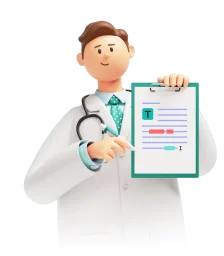Effective Communication Skills for Nursing Professionals
In today’s dynamic healthcare nursing setting, strong communication is as essential as a stethoscope. Nurses are on the frontlines of medical care; their skills to communicate effectively can make a world of difference in outcomes. Mastering communication skills is a significant aspect when you are interacting with patients and families to offer good care. Fortunately, we’ll explore key communication skills to develop. Additionally, in this blog, we’ll also highlight some productive ways to enhance your communication skills in the nursing profession.
Why Communication Matters
First understand why it is essential in a nursing environment before digging into the details. Moreover, strong communication skills help to collaborate with patient confidentiality, build trust with patients, and promote teamwork. In general, “A chain is only as strong as its weakest link.” So, poor communication skills may result in mistakes and misunderstandings and affect patients.
1. Active Listening
A basic foundation of good communication is active listening. This signifies paying full concentration to what anyone says, despite waiting for your turn to speak. When you listen to someone attentively, this means that you care about the patient’s needs and emotions. However, “listening is an art,” so answer appropriately, making eye contact, and nodding. Besides, it helps patients to feel honored, valued, and understood.
2. Clear and Concise Language
Always prefer clear and simple language while communicating with patients and colleagues. Because medical jargon is very confusing and many patients have difficulties understanding it. Despite this, break down complicated concepts into simple statements or manageable chunks. For instance, in spite of saying “hypertension,” you just say “high blood pressure.” This is a more convenient way to understand their condition.
3. Empathy and Compassion
Nursing is a caring profession; it is not just a job. Nursing is a demanding career; it requires dedication and compassion. Empathy is the ability to understand emotions and put yourself in someone else’s shoes. Generally, when patients are in pain or anxious, showing some empathy can make a world difference. Furthermore, empower them in critical situations and say, I know it is tough for you. In this manner, you can easily build nurse-patient relationships.
4. Non-Verbal Communication
Non-verbal communication plays a vital role. It transfers all messages through body language, facial expressions, gestures, and more. For example, a warm smile can develop a welcoming environment. “Actions speak louder than words,” although understand how your verbal messages align with non-verbal cues. A reassuring nod and a gentle touch give relief to a patient.
5. Asking Open-ended Questions
Asking open-ended questions is an effective way to collect data from patients. These questions empower patients to share their detailed information rather than just yes or no. Despite questioning, “Are you in pain?” just asking, “Can you express how you’re feeling?” This enables patients to share their condition without any hesitation and allows you to collect essential information for care.
6. Providing Clear Instructions
Nurses have the ability to communicate effectively to provide patient guidance about postoperative care or medication. Remember that your instructions are simple and easy to grasp. After delivering all guidelines, ask the patient to repeat the instructions in front of you for better understanding. This guarantees to minimize the risk of error and enable the patient to know what to do.
7. Documentation Skills
Good documentation is essential in the nursing profession. Appropriate and clear documentation ensures effective care and strong communication between healthcare professionals. Without accurate reports, it’s impossible to recover quickly. Be concise, use simple language, and make sure that all relevant data is recorded. Quality improvement in nursing is significant, so always prefer productive skills.
Conclusion
Good communication is an essential skill for the nursing profession that is a key for patient care. When collaborating with patients, always use clear language, express empathy, and give simple instructions. The importance of report writing in nursing is high because accurate information treats patients effectively. Generally, “communication is the key to success.” So acquire these skills to improve your nursing practice and give effective care. With compassion and practice, you’ll become a professional communicator. Prepare to tackle challenges with confidence and expertise in the nursing profession.
FAQs
- Good communication skills
- Empathy and compassion with patients
- Interpersonal Skills
- Teamwork Management
- Critical Thinking
- Pay attention to detail.
- Time Management
Effective communication is vital in creating rapport. Use of non-verbal communication skills, for example, eye contact, facial expression, body language, and tone of voice, is significant in the nursing profession.
Here are 5C in effective communication, such as:
- Conciseness
- Courtesy
- Clarity
- Coherence
- Completeness
Table of Contents
Toggle






